December 22, 2022 | January Payne
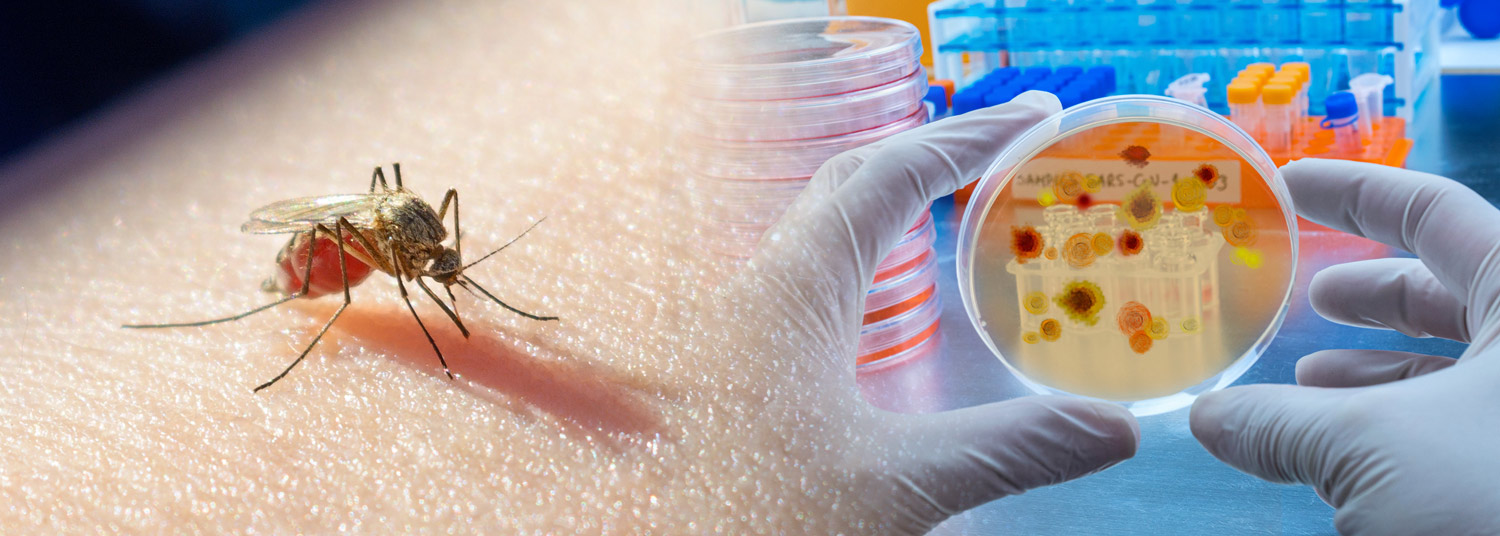
UM School of Medicine Researchers Pioneered Approach that Led to New Findings
A three-dose regimen of a whole-parasite vaccine against malaria – called Plasmodium falciparum sporozoite (PfSPZ) vaccine – demonstrated safety and efficacy when tested in adults living in Burkina Faso, West Africa, which has endemic malaria. That is the finding of a new study published on Dec. 7, 2022, in Science Translational Medicine. Researchers at the University of Maryland School of Medicine’s Center for Vaccine Development and Global Health (CVD) led the work.
About 241 million people worldwide were infected with malaria in 2020, and 627,000 people died from their infections. Scientists have tried for decades to develop a highly effective malaria vaccine without much success. That is because the vaccines have been shown not to provide much protection in those who have already been infected with malaria earlier in life due to their acquired immunity. The first vaccine against malaria (RTS,S/AS01) was approved by the World Health Organization in October 2021, and it provides modest protection against malaria.

“Our study shows that the vaccine can be given to malaria-experienced adults in a highly endemic area and still provide protection, which is difficult and complicated as these individuals already have significant immune responses to malaria parasites that must be overcome by a vaccine for it to be successful,” said study corresponding author Matthew B. Laurens, MD, MPH, Professor of Pediatrics at UMSOM and Director, International Clinical Trials Unit in the Malaria Research Group at CVD.
PfSPZ Vaccine is made with a live-attenuated form of the malaria parasite Plasmodium falciparum sporozoite, which is transmitted by mosquitos. The vaccine is made by Rockville, Maryland-based Sanaria Inc. and has been shown to provide at least 90-percent protection in challenge studies where volunteers are infected with malaria (in a highly controlled way); these studies were conducted by CVD researchers in the U.S. and by other groups in Tanzania. In African adults who previously had malaria, PfSPZ provided 52 percent vaccine efficacy against naturally transmitted malaria infection. Protection lasted 8 to 14 months.
 In the new study, researchers wanted to reduce the number of required injections from five shots to three, while improving vaccine efficacy. They assessed safety, tolerability, immunogencity, and vaccine efficacy of three injections of the vaccine in a two-part study.
In the new study, researchers wanted to reduce the number of required injections from five shots to three, while improving vaccine efficacy. They assessed safety, tolerability, immunogencity, and vaccine efficacy of three injections of the vaccine in a two-part study.
The first part enrolled 32 adults in a dose-escalation phase in 2016 and the second enrolled 80 adults in a randomized trial in 2017. In the randomized trial, 39 received PfSPZ Vaccine and 41 received placebo. Study participants were healthy men and non-pregnant women ages 21 to 40. The vaccines were well tolerated and without concerning side effects.
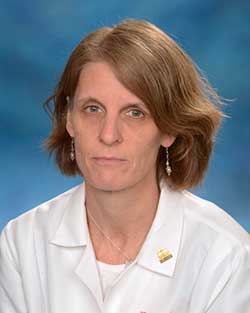
Additional co-authors on the newly published research from UMSOM’s Center for Vaccine Development and Global Health include: Kirsten E. Lyke, MD, Professor of Medicine; Sudhaunshu Joshi, MS, Laboratory Specialist; Biraj Shrestha, Laboratory Assistant; and Kathy Strauss, Laboratory Specialis.
The new study reflects a long history of malaria vaccine development at UMSOM that started in the early 1970s with landmark research from David Clyde, MD, former head of malarial studies at CVD. His studies demonstrated that high-level protection against malaria infection is possible using a whole organism vaccine.
Future research includes conducting additional clinical trials of the PfSPZ Vaccine in groups that would benefit most from vaccine-induced protection, including children, travelers, military personnel, and pregnant women.
Many of these studies are underway, including an ongoing trial at UMSOM to administer a compressed schedule of three doses of PfSPZ Vaccine in one month, which is a feasible timeline for travelers and military populations. Results of this study are expected in 2023.
The study was funded by NIH's National Institute of Allergy and Infectious Diseases grants U01AI112367 and 5R44AI055229.
About the University of Maryland School of Medicine
Now in its third century, the University of Maryland School of Medicine was chartered in 1807 as the first public medical school in the United States. It continues today as one of the fastest growing, top-tier biomedical research enterprises in the world -- with 46 academic departments, centers, institutes, and programs, and a faculty of more than 3,000 physicians, scientists, and allied health professionals, including members of the National Academy of Medicine and the National Academy of Sciences, and a distinguished two-time winner of the Albert E. Lasker Award in Medical Research. With an operating budget of more than $1.3 billion, the School of Medicine works closely in partnership with the University of Maryland Medical Center and Medical System to provide research-intensive, academic, and clinically based care for nearly 2 million patients each year. The School of Medicine has nearly $600 million in extramural funding, with most of its academic departments highly ranked among all medical schools in the nation in research funding. As one of the seven professional schools that make up the University of Maryland, Baltimore campus, the School of Medicine has a total population of nearly 9,000 faculty and staff, including 2,500 students, trainees, residents, and fellows. The combined School of Medicine and Medical System (“University of Maryland Medicine”) has an annual budget of over $6 billion and an economic impact of nearly $20 billion on the state and local community. The School of Medicine, which ranks as the 8th highest among public medical schools in research productivity (according to the Association of American Medical Colleges profile) is an innovator in translational medicine, with 606 active patents and 52 start-up companies. In the latest U.S. News & World Report ranking of the Best Medical Schools, published in 2021, the UM School of Medicine is ranked #9 among the 92 public medical schools in the U.S., and in the top 15 percent (#27) of all 192 public and private U.S. medical schools. The School of Medicine works locally, nationally, and globally, with research and treatment facilities in 36 countries around the world. Visit medschool.umaryland.edu
About the Center for Vaccine Development and Global Health
For over 40 years, researchers in the Center for Vaccine Development and Global Health have worked domestically and internationally to develop, test, and deploy vaccines to aid the world’s underserved populations. CVD is an academic enterprise engaged in the full range of infectious disease intervention from basic laboratory research through vaccine development, pre-clinical and clinical evaluation, large-scale pre-licensure field studies, and post-licensure assessments. CVD has worked to eliminate vaccine-preventable diseases. CVD has created and tested vaccines against cholera, typhoid fever, paratyphoid fever, non-typhoidal Salmonella disease, shigellosis (bacillary dysentery), Escherichia coli diarrhea, nosocomial pathogens, tularemia, influenza, malaria, and other infectious diseases. CVD’s research covers the broader goal of improving global health by conducting innovative, leading research in Baltimore and around the world. CVD researchers are developing new and improved ways to diagnose, prevent, treat, control, and eliminate diseases of global impact. Currently, these diseases include typhoid, Shigella, E. coli diarrhea, malaria, and other vaccine-preventable infectious diseases. CVD researchers have been involved in critical vaccine development for emerging pathogens such as Ebola and Zika. In addition, CVD’s work focuses on the ever-growing challenge of antimicrobial research.
Contact
January Payne
Director of Public Relations
Office of Public Affairs & Communications
c: 443-203-8183
e: january.payne@som.umaryland.edu
t: @januarypayne
Related stories
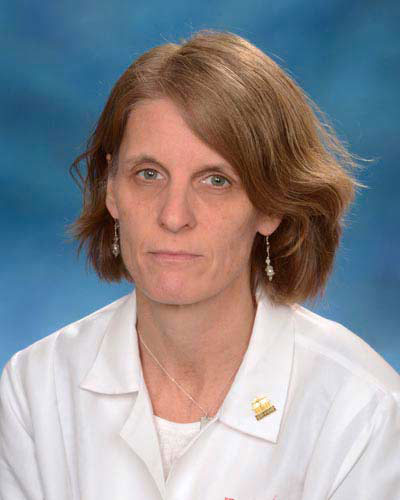
Friday, October 17, 2025
New Monoclonal Antibody Shows Promise for Preventing Malaria Infections
Malaria remains one of the leading causes of death among children in sub-Saharan Africa, claiming more than 600,000 lives each year worldwide with limited efficacy in currently available treatments and vaccines. Now a new early-stage clinical trial found that a novel monoclonal antibody provided dose-dependent full protection against the malaria parasite with minimal side effects.
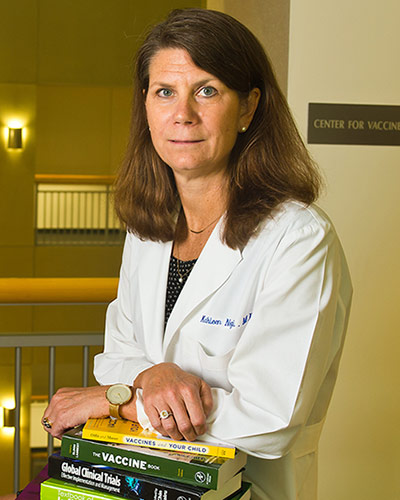
Wednesday, April 05, 2023
UM School of Medicine Researchers Chart Path Forward on Developing mRNA Vaccines for Infections Beyond COVID-19
After helping to develop and test new mRNA technologies for COVID-19 vaccines, University of Maryland School of Medicine (UMSOM) researchers and scientists are turning their attention to utilizing this innovative technology to ward off other infectious diseases like malaria and influenza. Last month, UMSOM faculty in the Center for Vaccine Development and Global Health (CVD) launched a new clinical trial to investigate the use of mRNA technologies to create a vaccine against malaria. CVD Director Kathleen M. Neuzil, MD, MPH, FIDSA also provided commentary in the nation’s leading medical journal on the feasibility of using mRNA to develop a universal influenza vaccine that could eliminate the need for seasonal shots.
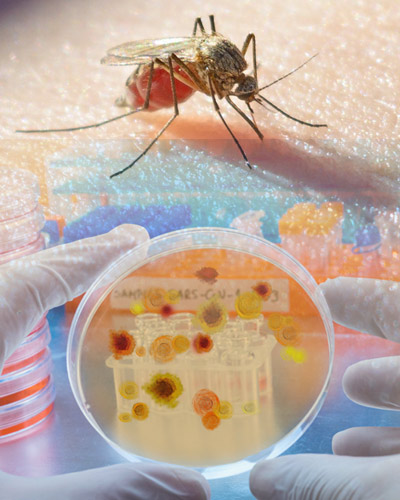
Monday, July 18, 2022
New Genomic Research Shows Why Testing Malaria Vaccines in the Clinic is as Rigorous as Natural Exposure in the Field
Malaria is the deadliest mosquito-borne parasitic infection of humans. In 2021, after a century of research, the World Health Organization (WHO) approved the world’s first malaria vaccine. That vaccine reduces the incidence of malaria infections in young children aged 5-17 months by only 30 percent, meaning that it remains critical to continue developing and testing more effective vaccines.

Tuesday, November 02, 2021
Unexpected Antibody Type Found in People with Malaria Infections
Malaria, a pathogen transmitted into blood by mosquitoes in tropical climates, is typically thought of as a blood and liver infection. However, in a newly published study, researchers at the University of Maryland School of Medicine (UMSOM) have detected antibodies primarily made in response to infections in the mucous membranes — in such areas as the lungs, intestines, or vagina — in study participants with malaria.

Sunday, October 28, 2018
American Society of Tropical Medicine & Hygiene Awards Dr. Miriam Laufer the LePrince Medal for Malaria Research
Miriam Laufer, MD, MPH, Professor of Pediatrics and Associate Director for Malaria Research at the University of Maryland School of Medicine’s (UMSOM) Center for Vaccine Development and Global Health (CVD), was awarded the Joseph Augustin LePrince Medal by the American Society of Tropical Medicine and Hygiene (ASTMH).
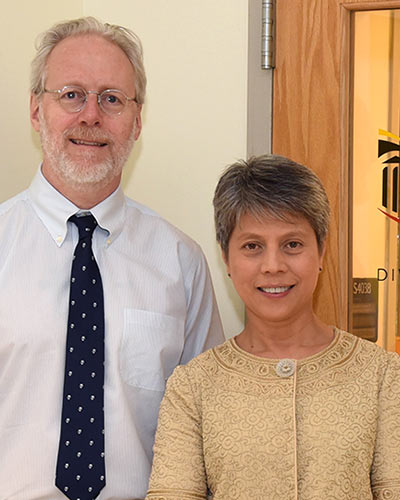
Thursday, May 04, 2017
UM School of Medicine Researchers Receive $9 Million Grant for Malaria Research
The University of Maryland School of Medicine has been awarded an International Center of Excellence for Malaria Research (ICEMR) grant by the National Institutes of Health’s National Institute of Allergy and Infectious Diseases (NIAID), one of seven ICEMRs awarded worldwide. With funding of more than $9 million over seven years, the grant will be used to research and develop new tools to help eliminate drug-resistant malaria in Myanmar and neighboring countries in Southeast Asia.
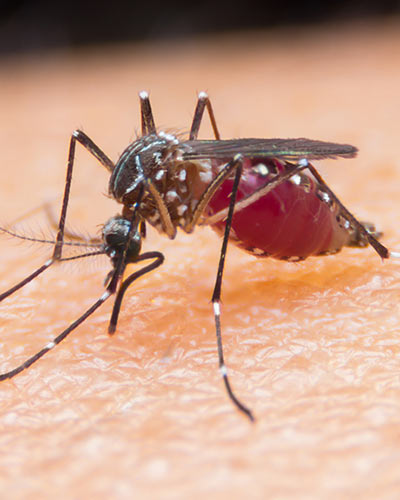
Friday, February 24, 2017
Experimental Malaria Vaccine Provides Durable Protection Against Multiple Strains in NIH Clinical Trial
An experimental malaria vaccine protected healthy subjects from infection with a malaria strain different from that contained in the vaccine, according to a study published this week in the Proceedings of the National Academy of Sciences (PNAS). The research was conducted by scientists at the University of Maryland School of Medicine and the National Institute of Allergy and Infectious Diseases (NIAID), part of the National Institutes of Health (NIH).
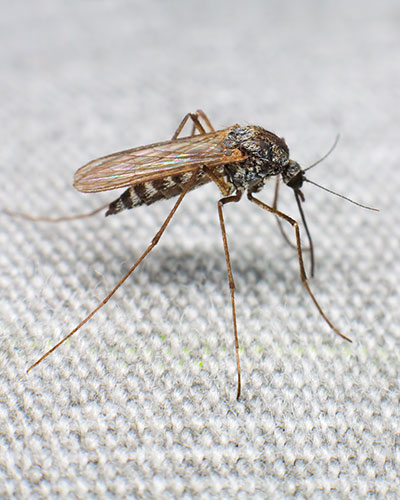
Wednesday, July 06, 2016
UMSOM Begins Malaria Vaccine Trial in Burkina Faso
Malaria is one of the world’s deadliest diseases: it infects hundreds of millions of people every year, and kills about half a million, most of them under five years of age.
